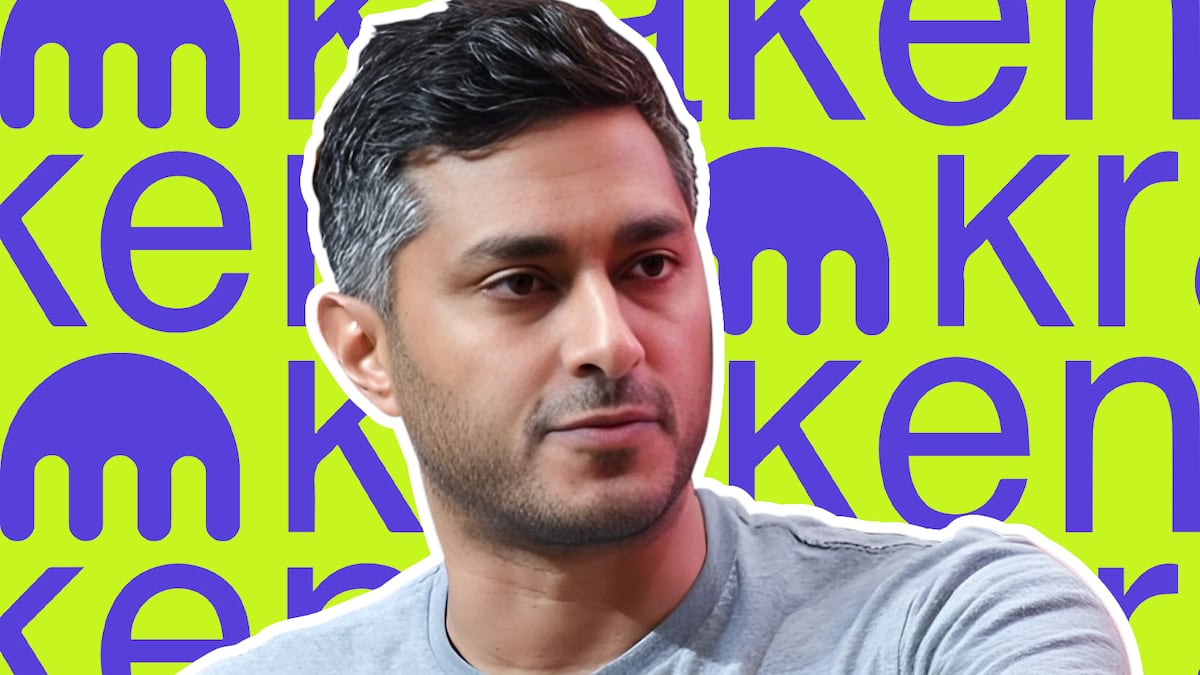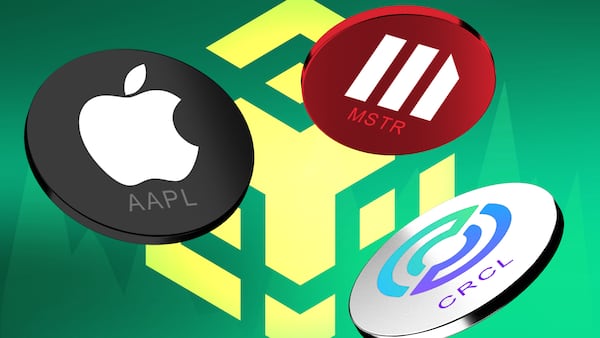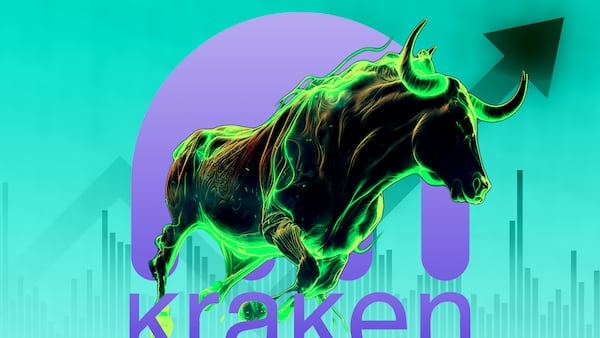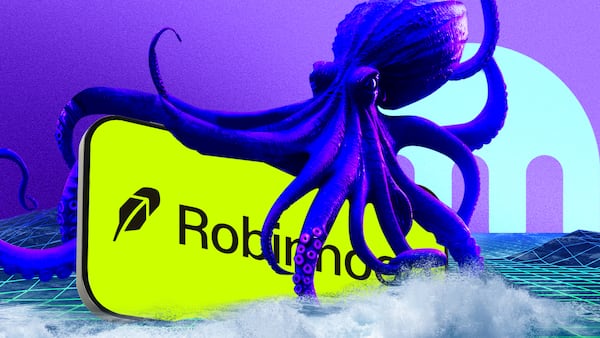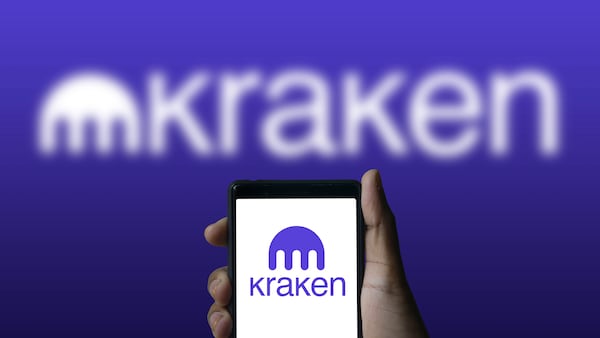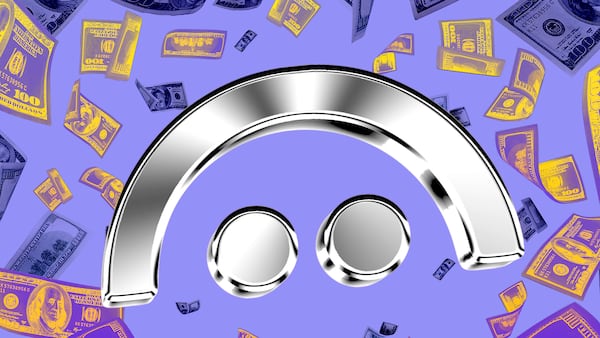- Kraken’s co-CEO plans to make it the largest crypto platform in the world.
- It faces stiff competition from crypto and fintech firms.
- Arjun Sethi tells DL News about Kraken’s IPO and acquisition plans.
Arjun Sethi says he doesn’t suffer from FOMO.
The question of whether Kraken’s co-CEO has a fear of missing out surfaced when DL News breached the topic of a potential public float for the US-based crypto exchange.
On paper, it’s about time. After all, the crypto industry has caught the IPO bug in a big way this year.
Rival exchanges Bullish and Gemini were listed on the New York Stock Exchange and the Nasdaq this summer, capitalising on sweeping market optimism thanks to the US government’s nouveau pro-industry policies.
Now, with pro-crypto President Donald Trump in the White House and a friendlier leadership at the US Securities and Exchange Commission that dropped its case against Kraken in March, one would imagine that those plans would be revitalised.
Yet, Sethi said in an exclusive interview that Kraken won’t follow suit just yet.
“If we were a part of what I call the pack of companies that have FOMO to go public, then we would have already filed,” he told DL News.
Deal hunting
The comments punctuate months of speculation suggesting that Kraken is plotting an IPO as early as the first quarter of 2026.
Kraken even hinted as far back as 2021 that it planned to go public, but those plans were delayed due to market downturns and conflicts with the SEC during the Biden administration.
Instead, Kraken has been busy acquiring smaller firms as part of the wider industry’s rampant M&A spree this year.
“We are not on an acquisition spree”
— Arjun Sethi, co-CEO of Kraken
Earlier in September, the company followed up its $1.5 billion acquisition of NinjaTrade, a retail futures trading platform, by acquiring Breakout, a proprietary trading firm with performance-based services. Kraken didn’t share the financial details of the latter deal.
Nevertheless, it leaves one wondering: Is Kraken still in the market?
“The short answer is ‘yes,’” Sethi said.
He added that Kraken won’t do “spray and pray” deals where it jumps on things just because they seem exciting, such as artificial intelligence.
“We are not on an acquisition spree, but we’re always evaluating strategic fits,” Sethi said. “Breakout and NinjaTrade weren’t opportunistic. They’re deeply aligned with our roadmap.”
‘Not trying to be a bank’
Sethi is no stranger to steering tech companies.
He’s the founder of the startup MessageMe, which was acquired by Yahoo in 2014. More recently, the Silicon Valley veteran has made waves as the co-founder of Tribe Capital. The venture capital firm invested in Kraken in 2020 and Sethi joined the board in 2021.
When Sethi stepped up as co-CEO of Kraken alongside Dave Ripley in October, their stated mission was to make the exchange “the largest crypto platform in the world.”
To that end, the exchange has been busy rolling out a slew of new services alongside the acquisitions.
The venture has expanded to include custody and prime brokerage services. Kraken has also partnered with Dutch challenger bank bunq and an unnamed major French bank to offer crypto services to their clients. It has similarly inked a deal with Alpaca, a brokerage infrastructure platform, to expand its services to its corporate clients.
The goal, Sethi said, is that the institutional investors will make up a third of its revenue, with retail and mid-market traders making up the other two thirds. He didn’t share any details on how close Kraken is to achieving that goal.
And though Kraken is drawing a similar strategy to fintech firms such as Revolut and PayPal — launching a payments service and, soon, its own debit card — Sethi is adamant the exchange is in a category of its own.
“We’re not trying to be a bank, we’re not trying to be a broker,” Sethi said.
Growing competition
Still, becoming the biggest crypto company in the world is a massive undertaking.
Sethi spoke with DL News as crypto companies and fintech firms are besieging Kraken on all sides. And many of them are much bigger than Kraken.
Sethi declined to share Kraken’s current valuation, only confirming that the exchange’s valuation was put at $15 billion in March ahead of its NinjaTrader deal.
If the valuation has remained unchanged over the past six months, that puts Kraken well below Coinbase’s $85 billion market cap, but still ahead of newly listed crypto exchanges Bullish and Gemini, at around $10 billion and $3 billion, respectively.
Coingecko ranks Kraken as the sixth-largest exchange globally and the 28rd-largest in the world, based on volume. Kaiko ranks Kraken as the number one spot exchange in the world, with only Binance having a better liquidity score — a key metric for the 42-year-old crypto exec.
“Everyone forgets the word liquidity,” Sethi said. “Everyone focuses on volume, but liquidity is what matters more than anything else, and we have global access. So we’re top three worldwide.”
Even though the market is growing crowded with both crypto companies and fintech firms, Sethi seems confident that Kraken will hold its own.
When asked if Kraken is a profitable business, Sethi advises focusing on earnings before interest, taxes, depreciation, and amortisation, or EBITDA.
“We’re EBITDA positive and that kind of just tells you that there are no losses,” he said.
The line echoes that of Sethi’s co-CEO Ripley, who kicked off 2025 by stating that Kraken was profitable.
Kraken declined to provide what its net profit is once the potential expenses in EBITDA are removed.
Still, the number does provide some insights into how the exchange measures up against its rivals.
In the second quarter of 2025, Kraken’s total revenue was $412 million, and its EBITDA was just under $80 million. By comparison, Coinbase’s revenue was $1.4 billion and its EBITDA was $512 million in the same period.
And with a slew of institutional investors pouring into the exchange, Sethi is as optimistic as ever.
“This will just continue to grow,” he said.
Eric Johansson is DL News’ managing editor. Got a tip? Email at eric@dlnews.com.


